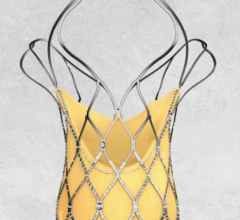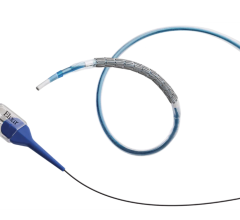December 14, 2007 - According to a guideline update published online today in the journals of the Society for Cardiovascular Angiography and Interventions (SCAI), American College of Cardiology (ACC) and American Heart Association (AHA), patients treated with drug-eluting stents must take a combination of aspirin and the clot-reducing drug clopidogrel for at least one year, and possibly longer, after stent implantation.
Percutaneous coronary intervention (PCI), or angioplasty is a proven therapy for stopping heart attack and relieving painful symptoms of heart disease that result from arteries narrowed or blocked by the build-up of fatty deposits. The guideline update incorporates findings from research published relatively recently on the role of PCI in the spectrum of care for heart disease patients.
"For most patients suffering a heart attack, angioplasty and implantation of a stent is a life-saving procedure," said SCAI President Dr. Bonnie Weiner. "However, both patients and the medical community need to understand how essential dual anticoagulant therapy is after receiving a drug-eluting stent. That's the purpose of this update - to stress this and other evidence published relatively recently."
The update specifically addresses findings from studies published through late 2006. One of the concerns that arose during this period was about a slightly higher risk of blood clots forming inside drug-eluting stents. These clots are a rare but serious complication of drug-eluting stents and must be prevented with a strict regimen of aspirin plus the clot-reducing drug clopidogrel for at least one year after the artery is opened with a stent.
"By emitting tiny amounts of medication, drug-eluting stents reduce the regrowth of scar tissue and other build-up that could renarrow the artery, creating a need for a repeat angioplasty," explained Dr. Weiner. "While we don't want to understate the precautions that should be taken to prevent clots, we also want to factor in the benefits of these newer devices.
"If there are doubts about whether the patient can stay on the dual-antiplatelet therapy for at least one year, then a bare metal stent is probably the better choice," stressed Dr. Weiner. "We want to encourage physicians to think about the patient's history with compliance to drug therapy as well as other potential obstacles, such as planned surgeries, that might lead them to not take their aspirin and clopidogrel. In those cases, the update calls for a bare metal stent or balloon angioplasty with provisional stent implantation."
For more information: www.scai.org


 July 02, 2024
July 02, 2024 









